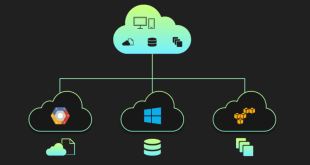In the rapidly evolving digital landscape, cloud computing has become an integral part of modern business operations. However, concerns about data security and privacy have always been at the forefront. As cyber threats continue to advance, traditional encryption methods face challenges in maintaining data integrity and confidentiality. Here, we delve into a groundbreaking solution that holds the potential to revolutionize cloud security – Quantum Cryptography.
Understanding Cloud Security in the Modern Era
Before diving into Quantum Cryptography, let’s understand the types of security prevalent in cloud computing. Cloud data security involves a series of measures and protocols designed to safeguard data stored and transmitted over the cloud. These measures include:
Encryption: Encrypting data ensures that even if unauthorized entities gain access to it, they cannot interpret the content without the encryption keys.
Authentication: Verification processes like two-factor authentication add an extra layer of security, minimizing the risk of unauthorized access.
Access Control: Implementing strict access control mechanisms allows organizations to limit data access to authorized personnel only.
Firewalls and Intrusion Detection Systems: These act as digital barriers, monitoring and blocking potential threats.
Data Backup and Recovery: Regular data backups are crucial to ensure data recovery in case of breaches or accidents.
Quantum Cryptography: A Quantum Leap in Security
Quantum Cryptography is an innovative approach that utilizes the principles of quantum mechanics to establish highly secure communication channels. Unlike traditional encryption methods, which rely on mathematical complexity, Quantum Cryptography relies on the fundamental laws of physics to protect data. Let’s explore some key aspects of this cutting-edge technology:
Quantum Key Distribution (QKD)
QKD is at the core of Quantum Cryptography. It enables the secure exchange of encryption keys between parties, ensuring that any attempted interception is immediately detectable. The fundamental principle behind QKD is the observer effect in quantum mechanics, which implies that the mere observation of a quantum state alters it. As a result, any eavesdropping attempts would be evident to the communicating parties, making QKD immune to interception.
Heisenberg’s Uncertainty Principle
Heisenberg’s Uncertainty Principle is another crucial aspect of Quantum Cryptography. It states that the more precisely one property of a quantum system is measured, the less precisely another property can be known. This principle introduces a level of unpredictability and randomness, adding an extra layer of security to quantum cryptographic systems.
Quantum Key Authentication (QKA)
QKA is a powerful mechanism that ensures the integrity and authenticity of the exchanged encryption keys. It utilizes quantum signatures that cannot be duplicated or forged, making it virtually impossible for malicious actors to tamper with the keys during transmission.
Post-Quantum Cryptography (PQC)
While Quantum Cryptography offers groundbreaking security, the rapid advancement of quantum computing also raises concerns about the decryption capabilities of traditional encryption algorithms. To address this, researchers are working on Post-Quantum Cryptography (PQC), which involves developing encryption methods resistant to attacks from quantum computers.
The Potential Impact of Quantum Cryptography on Cloud Security
The integration of Quantum Cryptography into cloud security has the potential to revolutionize data protection in several ways:
Unbreakable Encryption
With QKD ensuring the secure exchange of encryption keys, Quantum Cryptography offers virtually unbreakable encryption. As quantum computing matures, traditional encryption methods may become vulnerable, making Quantum Cryptography an indispensable solution to safeguard sensitive data.
Enhanced Data Privacy
Quantum Cryptography’s reliance on quantum properties introduces inherent randomness and unpredictability into the encryption process. This enhances data privacy by making it exceedingly difficult for adversaries to decipher encrypted information.
Future-Proof Security
As quantum computing progresses, traditional encryption techniques might become obsolete. Quantum Cryptography, on the other hand, remains unaffected by advances in quantum computing, making it a future-proof security solution.
Resilience Against Cyber Threats
By providing detection mechanisms for eavesdropping attempts, Quantum Cryptography ensures that malicious activities do not go undetected. This resilience strengthens cloud security against various cyber threats.
Global Adoption and Interoperability
As Quantum Cryptography gains traction, its standardized implementation will lead to global adoption. This will also drive the development of interoperable systems that can communicate securely across different platforms and cloud service providers.
Final Words
In conclusion, Quantum Cryptography represents a quantum leap in cloud security, offering unprecedented levels of data protection and privacy. By leveraging the principles of quantum mechanics, this cutting-edge technology addresses the limitations of traditional encryption methods, ensuring secure communication and future-proof security. Embracing Quantum Cryptography in cloud computing will be a vital step towards fortifying the digital infrastructure against evolving cyber threats.
Commonly Asked Questions
1. Is Quantum Cryptography practical for everyday cloud users?
Yes, while Quantum Cryptography is a sophisticated technology, its benefits extend to everyday cloud users as well. As the technology matures, it is expected to become more accessible and user-friendly.
2. Can Quantum Cryptography completely eliminate cyber threats?
While Quantum Cryptography provides robust security, no system is entirely immune to threats. However, its ability to detect eavesdropping attempts significantly enhances cloud security.
3. How far has Quantum Cryptography progressed in real-world applications?
Quantum Cryptography is already being deployed in some niche applications, such as secure communication between government agencies and financial institutions. However, widespread adoption is still in the early stages.
4. Are there any drawbacks or challenges associated with Quantum Cryptography?
One of the main challenges is the cost and complexity of implementing Quantum Cryptography systems. Additionally, ensuring global standardization and interoperability is crucial for its broader adoption.
5. Will Quantum Cryptography make traditional encryption obsolete?
While Quantum Cryptography offers unparalleled security, it is not intended to replace traditional encryption methods entirely. Instead, both approaches can complement each other to create robust security measures.
 webfily
webfily



